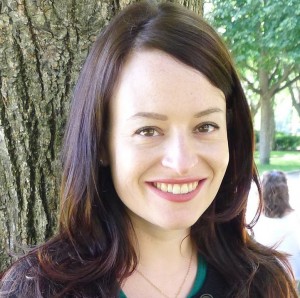Date: Monday, March 10 2014
Time: 10.30-10.50am
Location : Austin Convention Center, Ballroom G, 500 E Cesar Chavez St
Social media has become a part of our everyday norm. Although some may prefer Facebook to Twitter or Instagram to Pinterest, it is rare these days, to find someone who is not connected to some sort of social media. Scroll down your own social media feed and you’ll find status updates that range from the mundane “what I had for lunch” snapshots to check-ins at fancy holiday resorts. But what does it all mean and how is it affecting us as a society?
Dr Alice Marwick’s book Status Update: Celebrity, Publicity, and Branding in the Social

Media Age discusses this very question. “I have been researching social media and internet culture for about a decade now and before entering academia, I worked in the tech industry,” she explains. “In the 1990s and early 2000s, many of the claims made by journalists and pundits about social media technologies involved their ability to open up spaces of participation. For example, YouTube was viewed as a ‘democratic’ technology because it allowed for everyday people to produce video content that could be widely viewed, whereas broadcast media made this possible only to a few. I was interested in looking at this idea of democracy critically. I decided that examining “social status” would let me see whether social media technologies really did decrease social boundaries and increase participation, or whether they created social hierarchies that restricted participation in other ways. “
So does the way we represent ourselves online generally affect or differ from the way we represent ourselves in real life then? “Yes and no,” Dr Marwick said. “Most people don’t have a Facebook profile under a different gender, for example, or with a fake occupation. While most Reddit users use pseudonyms, they also frequently talk about details of their day-to-day lives which makes it easy to identify them. So most people aren’t actively deceptive online. However,“ she adds, “most people engage in what’s called ‘impression management, ’meaning they try to control or influence how other people see them. We carefully pick out our profile pictures, for instance.”
Social media has also now allowed everyone access to an audience that has never been accessible to the layman in any other time in history. But even though this has led to a new breed of celebrites, it is unlikely they will replace the Tom Cruises’ and One Direction’s of the world . “I think for the most part social media has enabled micro-celebrities, who tend to be ‘famous to fifteen people’ rather than popular on the broadcast media scale,” said Dr Marwick. “People like Mollysoda on Tumblr, or Miranda Sings on YouTube, have enormous online fan bases but they pale in comparison to how many people recognize the average sitcom actor. Their audiences might be very passionate and treat them as if they were a ‘traditional’ celebrity, but these micro-celebrities don’t necessarily have the financial resources or success that Kim Kardashian has,” Dr Marwick explains. “Tabloid celebrities fill a different cultural niche; they are mass culture, in that they provide basic templates that people use to discuss different issues.”
Although most will agree that there are many pro’s to the rise and connectivity of social media, there is also a dark side to it. It can cause anxiety. “Fear of Missing Out, or FOMO, happens when people view other people’s activity on social media and wish they were there,” Dr Marwick explains. “This is especially prominent with Instagram and Foursquare, which often make it quite obvious who’s hanging out with who. The best way to avoid such anxieties is just to make your plans and then stay off social media – don’t constantly be looking for something better to do.”
Dr Marwick will be doing a reading from her book at the SXSW Interactive Festival this year. “I hope to inject a critical perspective into the conversation, and let people know that the rah rah pro-entrepreneur point of view which is really prevalent at SXSW isn’t necessarily exactly what it seems.”
